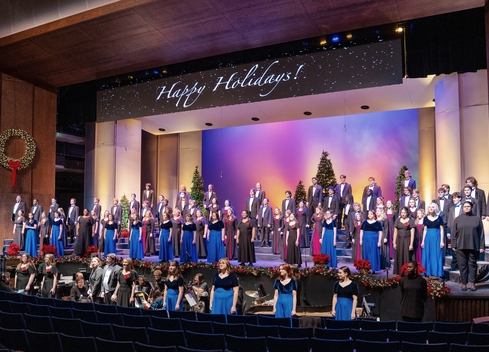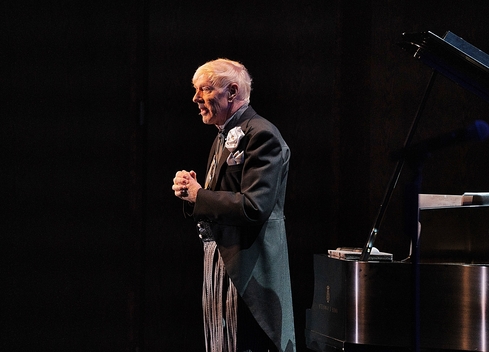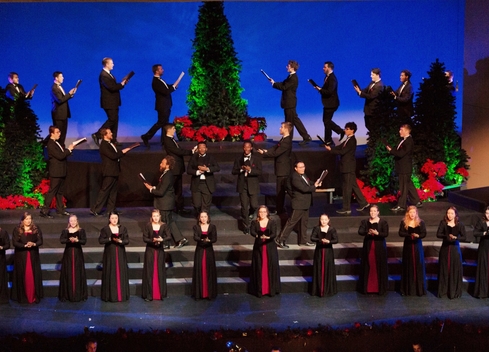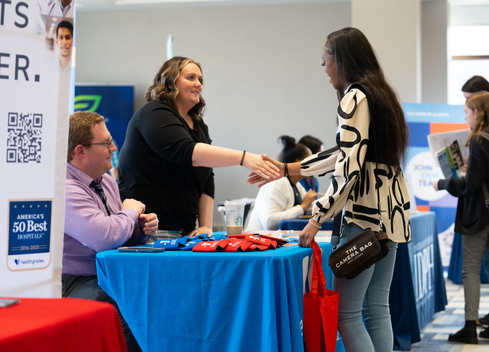Music Business at Millikin prepares students for a career in today’s music industry through engagement with traditional business, entrepreneurial and DIY strategies for music performance, marketing, distribution, contracts, revenue streams, merchandising, publishing and touring.
Music Business, B.A., B.S., B.M.

-
Faculty Spotlight
Martin Atkins has decades of experience in all aspects of the business from working with Sex Pistols’ vocalist, Johnny Rotten, and Public Image LTD...
Overview
Program Highlights
Bachelor of Music (BM)
Music business acumen for the music practitioner.
BM Music Business students are prepared to serve their own artistic ambitions and those of others through the synthesis of musicianship, traditional business, and music business training and strategies.
This program of study provides a rigorous core of musicianship training alongside music business and traditional business coursework designed to provide aspiring artists the tools for a career in today’s music industry.
Students are also eligible for a College of Fine Arts Scholarship including amounts up to $5,000 per year.
Bachelor of Arts (BA) or Bachelor of Science (BS)
Music business acumen for the creative practitioner. Geared toward understanding the business tools for the 21st century musician, the Music Business BA and BS degree programs will assist students in finding themselves and their passions while building the mindset and the toolset to make their futures happen. BA and BS Music Business students are prepared to facilitate and serve users, consumers, and artists through symbiotic relationships within the music industry.
This program of study encompasses training in music fundamentals alongside music business and traditional business coursework designed to provide the creative practitioner the tools for a career in today’s music industry. Creative practitioners are people who possess and utilize a broad range of skills to explore possibilities and support achievement through creative behaviors.
The curriculum includes:
- - hands-on learning experiences with running a record label;
- - creating and organizing Millikin's Midwest Music Expo (MMX) with an educational/panel component; and
- - engaging in Martin Atkins' Tour Smart Bus Experience – a 24/7 internship into the world of a real tour.
Students are automatically entered into the program upon admittance to the University; an audition is not required for admission. Students are also eligible for a Foley Music Business Scholarship including amounts up to full-tuition.
Click here to find the plan of study
Bachelor of Music: Emphasis in Music Business Audit Sequence
Courses
Departmental Course Offerings
Courses change each semester, so this list should not be considered a commitment to these individual topics. However, this does represent a list of many of our current and popular courses. The list is provided so that you can begin to imagine your academic career at Millikin in this major.
Record Label History and Operations There have been over 5000 record labels; some triumph and create a mythology while some crash and burn. This course seeks to identify the causes of failure and the practices of success in the record business through examination of major and independent record labels. Topics to include day-to-day label operations, licensing, decision making and prioritization, methods of distribution, and the many and varied positions at a record label and how they have evolved to the current day. Music Business Marketing Why music business marketing? If there’s one thing the music business has consistently delivered it’s interesting ideas, cutting edge tactics, and strategies that filter across and inspire traditional business and marketing. From Radiohead’s innovative pricing structure of pay what you feel to Nipsey Hussle’s $100 mixtape to the inspired immortality sweepstakes, the Grateful Dead and even Nine Inch Nails. It’s a requirement for a band to differentiate itself. Music business is a place where marketing, branding, and innovative concepts are continually being reexamined and new ideas every day create more new ideas at a pace faster than a traditional business. We’ll look at all of these ideas to the nuts and bolts, social media concepts, as well as, new topics and techniques including the budding gift economy, the power of stories and the importance of creating them. As Linda Septian (artist developer) describes, it’s a time of the “contextual branding of thought.”
Event Management An examination of event planning encompassing the assembling of artists and bills (lineups), timing and calendar blocking, advanced ticketing strategies, and day-of operations and payouts. Students will engage in exercises that support the creation of intriguing and engaging events. The course will also examine museums, festivals, and other models.
Touring 101 Students will understand the concepts of event management and touring, as well as, the logistics of geography, demographics and basic routing. They will analyze and evaluate the results of previous touring examples to suggest and apply expertise to basic and advanced touring problems. In applying industry solutions to differing touring conceptual problems they will gain the knowledge base to create touring templates of their own. Internship Theory and Strategy The course is in two phases. Phase one is learning about internship strategies, etiquette, and best practices via assigned readings and subsequent exam. Phase two involves planning a series of three internships sourced from the student or from the existing MIS database. Students will interact with internship supervisors in the field as they work to secure/schedule these internships. First Step Records Internship Intended to simulate a real-world external internship where intern “floats” around a certain number of tasks, filling in where necessary and synthesizing an awareness of the environment and expectations. Seemingly menial tasks conducted in a think tank environment can lead to further growth in a low-stress way in a high stakes world. Internship An opportunity for students to receive academic credit outside the classroom for work related to their field of study. Students must complete three separate one-credit internships in consultation with MIS faculty. A minimum of 40 contact hours is required for each internship to receive one credit. Summer tuition may be applied if internship is completed during the summer term. First Step Records Through participation in this student-run venture, students experience Performance Learning opportunities in production, manufacturing, accounting, legal affairs, publishing, marketing/ promotion/sales, graphic arts, artists and repertoire, customer service, supply chain and budget management, and e-commerce relative to managing and operating a record label and publishing entity. Students also explore entrepreneurial opportunities in music business. Prerequisite: MC 2xx First Step Records Internship (1cr). One semester of being an FSR intern also counts as the first of student’s three internships. Revenue Streams This course explores, identifies, and contextualizes potential revenue streams within the music business. Legal Issues in the Arts A survey course exploring legal and business issues in the arts from established legal guidelines for LLCs and sole proprietorships to the newer areas of non-profits, hybrids, 501c3’s, fiscal agents, and PBC. The broader areas of fair use in the arts, sampling and music recording, publishing, graphics, musical theater and related businesses will also be examined. Senior Seminar A survey course exploring legal and business issues in the arts from established legal guidelines for LLCs and sole proprietorships to the newer areas of non-profits, hybrids, 501c3’s, fiscal agents, and PBC. The broader areas of fair use in the arts, sampling and music recording, publishing, graphics, musical theater and related businesses will also be examined. |





